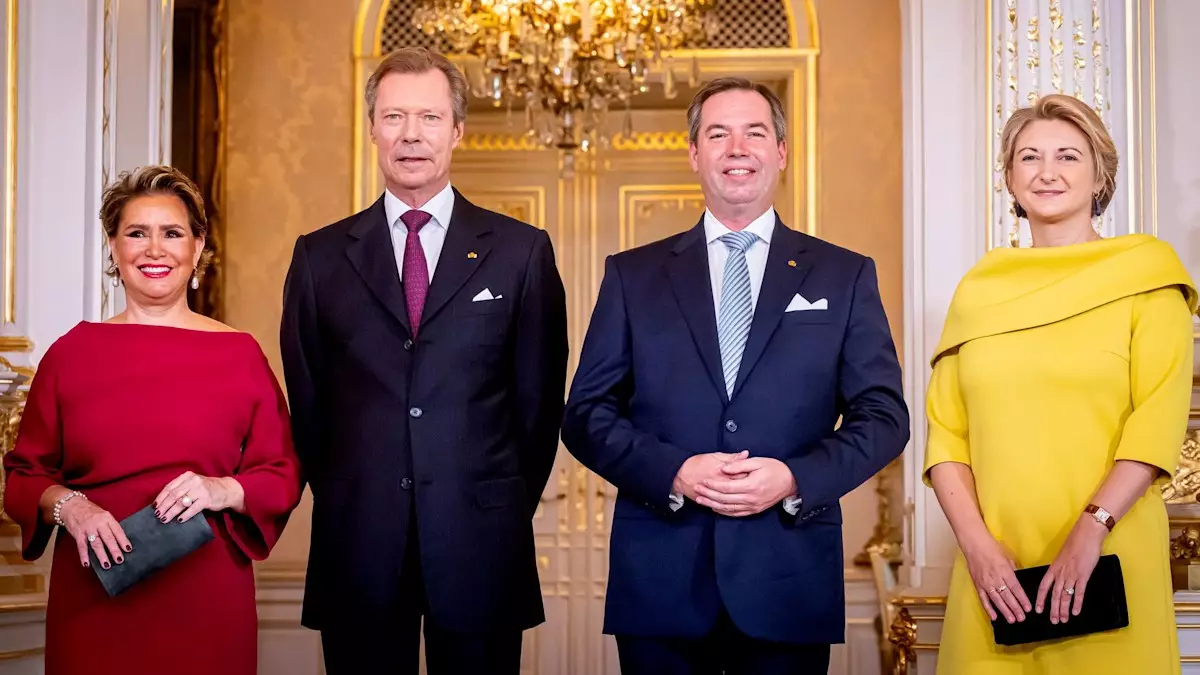Tuesday marked a significant milestone in the history of the Luxembourg monarchy as Grand Duke Henri entrusted his eldest son, Prince Guillaume, with the role of Lieutenant-Representative, effectively initiating a notable transition within the royal family. This appointment grants Prince Guillaume a considerable amount of his father’s constitutional powers, setting the stage for Grand Duke Henri’s eventual abdication. Such a shift echoes a long-standing tradition within Luxembourg’s royal lineage, as Henri himself had been conferred the same title by his father, Grand Duke Jean, back in 1998 prior to ascending the throne in October 2000.
The designation of Prince Guillaume as Lieutenant-Representative not only illustrates a familial transfer of duties but also signifies a strategic move in terms of the monarchy’s future. Grand Duke Henri’s decision comes in light of his recent remarks on wanting to “slow down,” implying that he acknowledges the demands and responsibilities tied to his royal position. As Prince Guillaume steps into his role, he will take on a range of responsibilities, such as signing official documents and partaking in state visits, signaling his preparedness to play an increasingly prominent role in the national and public sphere.
Speculation surrounding the timeline of Grand Duke Henri’s abdication suggests a possible alignment with his 25th anniversary on the throne in 2025 and his upcoming 70th birthday. Although the Grand Duke refrained from providing a definitive date, his comment that “it won’t take forever” hints at considerable changes on the horizon for the royal family.
The familial structure surrounding Prince Guillaume remains largely unchanged, with the royal couple, Guillaume and his wife Stephanie de Lannoy, proud parents to young sons Prince Charles and Prince François. Their family life will soon be complemented by a privately funded annexe being constructed on the grounds of Berg Castle, indicating plans for a more permanent base as Prince Guillaume prepares for the mantle of Grand Duke.
Simultaneously, Grand Duke Henri and Grand Duchess Maria Teresa are expected to transition to Fischbach Castle, thus allowing Prince Guillaume and Stephanie to take the reins in what promises to be an era of both continuity and change. This dynamic illustrates a carefully curated family legacy that emphasizes both tradition and modernity, where familial bonds are paramount.
As Prince Guillaume prepares for a greater role within the royal framework, the implications for the nation are profound. The transition of power is not just a royal affair; it reflects the evolving dynamics of governance and public service in Luxembourg. With an eye toward the future, the monarchy appears poised to adapt to contemporary challenges while preserving the essence of its rich heritage.
The appointment of Prince Guillaume marks the dawn of a new chapter for the Grand Ducal family. As Henri steps back, the emergence of his son as the Lieutenant-Representative sets the tone for a rejuvenated monarchy capable of navigating through the complexities of modern governance while staying true to its historical roots. The days ahead will likely unveil a narrative filled with both challenges and triumphs as Luxembourg prepares to welcome a new generation of royal leadership.


Leave a Reply